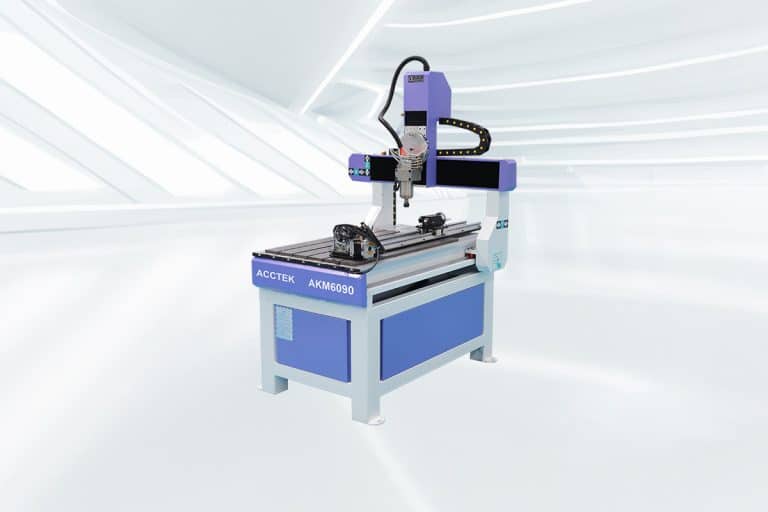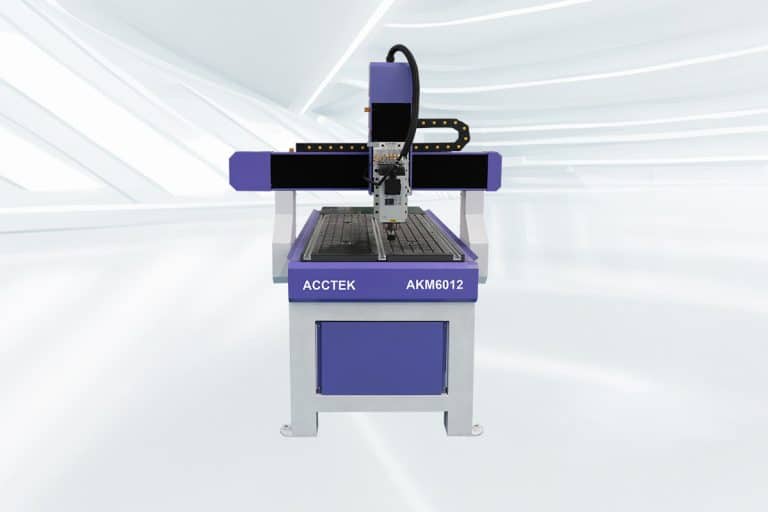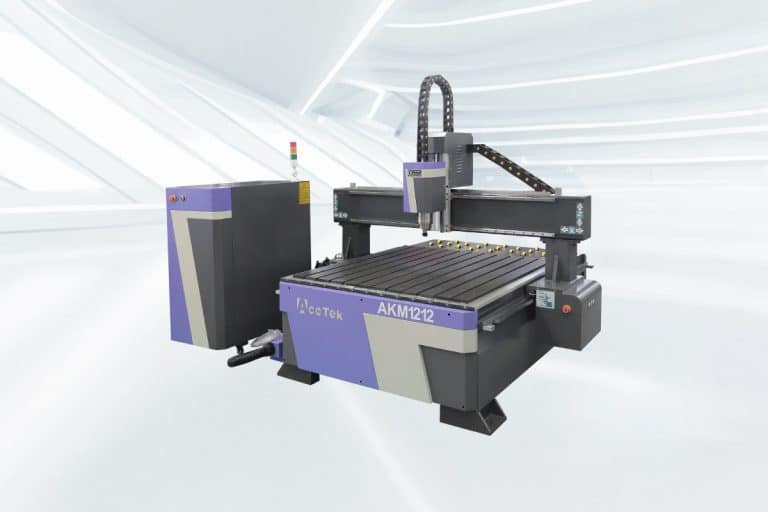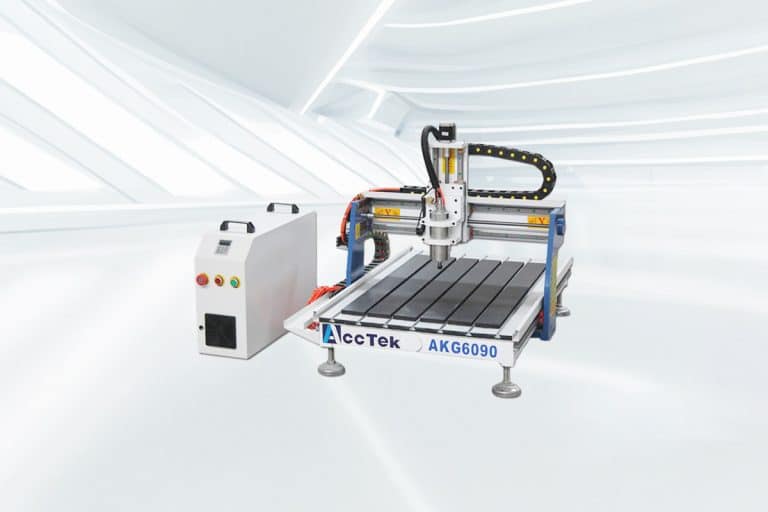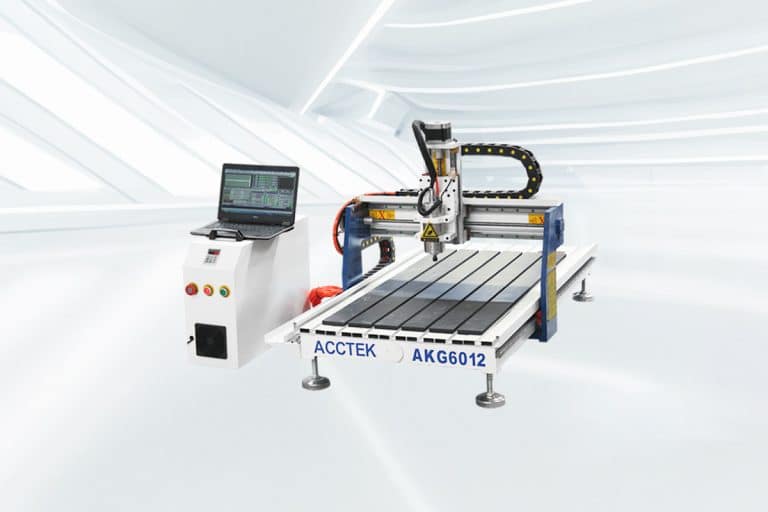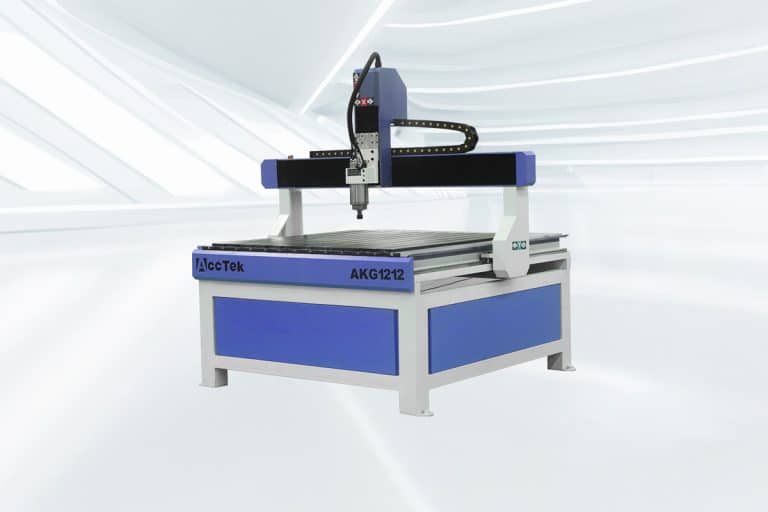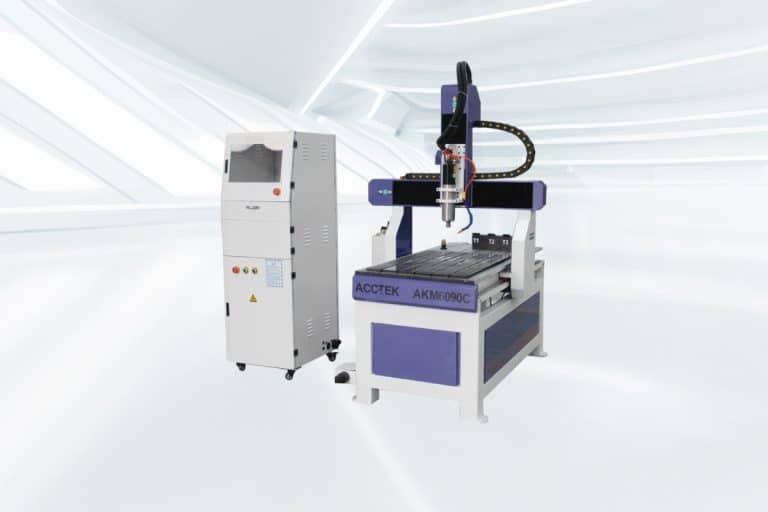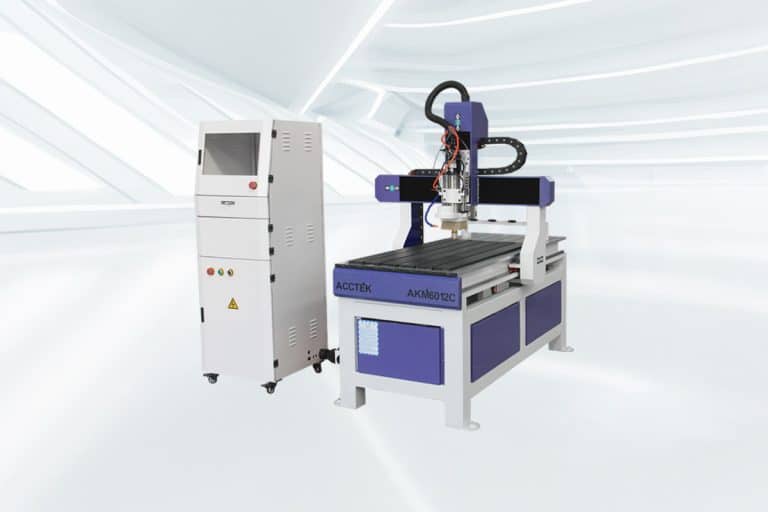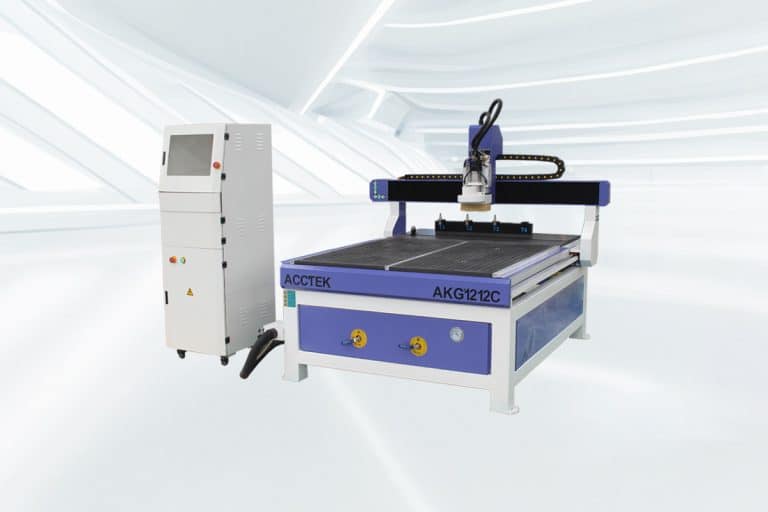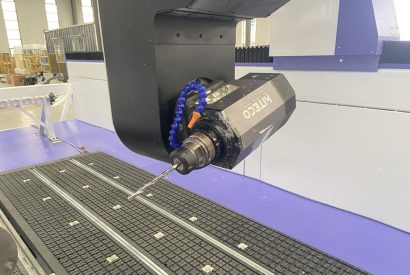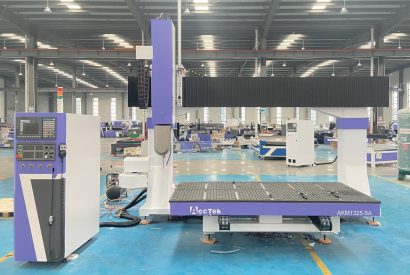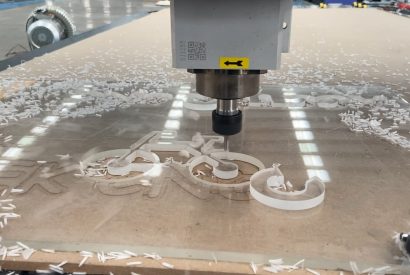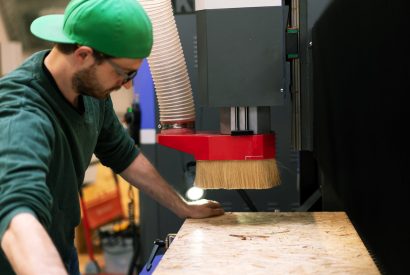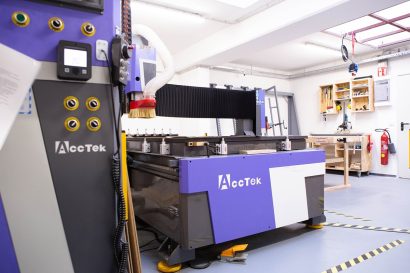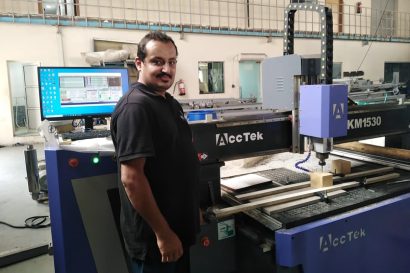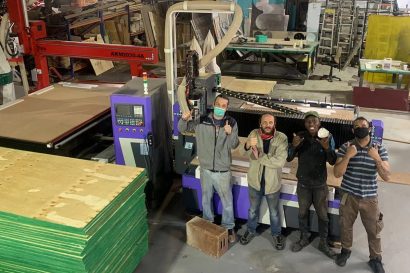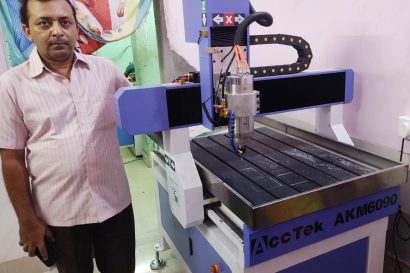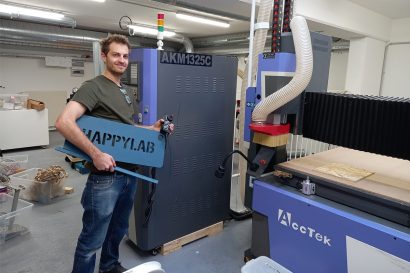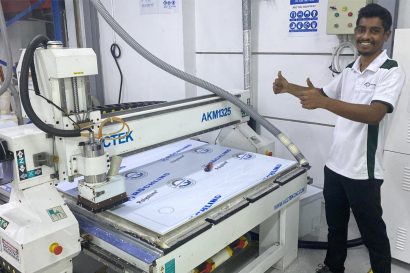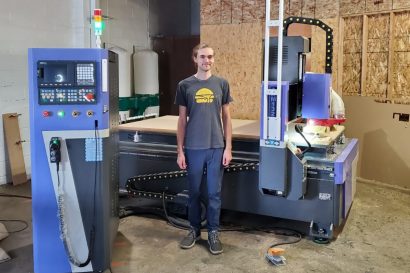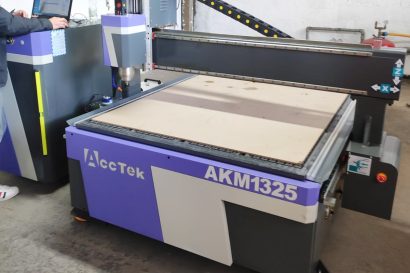Small CNC Router
Small CNC routers are compact, versatile, and powerful machines designed to bring precision and efficiency to your manufacturing, crafting, or hobbyist projects. Ideal for both beginners and professionals, these CNC routers are perfect for applications in industries such as woodworking, engraving, prototyping, and metal fabrication. Their smaller footprint allows them to fit seamlessly into home workshops, small businesses, or classrooms, without compromising on performance or functionality.
Equipped with advanced features like high-speed spindles, user-friendly control interfaces, and compatibility with a wide range of materials, small CNC routers offer exceptional accuracy and reliability. They are capable of cutting, carving, and engraving wood, plastics, soft metals, and even composites with ease. Many models also come with intuitive software and modular designs, enabling quick setup and customization based on your specific needs.
Whether you’re crafting intricate designs, building prototypes, or producing small-batch components, small CNC routers deliver professional-grade results with minimal effort. With a variety of models available to suit different budgets and technical requirements, these CNC routers make high-precision machining accessible to everyone. Explore our collection today to find the perfect small CNC router that matches your creative or business ambitions.
Tips for Choosing the Right Small CNC Router
Choosing the ideal small CNC router is crucial for achieving precision and efficiency in your projects. Whether you’re a hobbyist or a professional, identifying the right machine involves evaluating its features, compatibility, and usability. From understanding your project requirements to considering technical specifications, the right decision can save you time and maximize your investment.
Define Your Project Requirements
Understanding your project needs is the first step in selecting the right CNC router. Consider the types of materials you’ll work with, the size of your projects, and the intricacy of your designs. Whether it’s wood, plastic, or metal, choosing CNC routers tailored to your primary tasks ensures optimal performance and efficiency.
Verify Material Compatibility
Different CNC routers are designed to handle various materials. Ensure the machine you choose is compatible with the materials you intend to use, such as wood, acrylic, or soft metals. Matching your CNC router to your material needs ensures precise results and extends the machine’s lifespan.
Evaluate Table Size and Workspace
The size of the worktable determines the maximum dimensions of materials you can process. Compact CNC routers are great for smaller spaces but may limit your project scope. A larger table provides versatility, accommodating bigger pieces and complex designs.
Consider Cutting Speed and Accuracy
Balancing cutting speed and accuracy is critical. High speeds improve efficiency for large-scale projects, while precise control is essential for intricate work. Evaluate the machine’s specifications to ensure it meets your desired level of detail without sacrificing productivity.
Assess Build Quality and Durability
A sturdy CNC router made from high-quality materials like aluminum or steel reduces vibration and improves accuracy. Solid construction ensures consistent performance and durability, making it a reliable investment for long-term use.
Look for Compatible Software
Choose CNC routers with software that matches your skill level and project needs. Some models come with proprietary software, while others support popular CAD/CAM programs. User-friendly software simplifies design creation and enhances workflow efficiency.
Evaluate Ease of Setup and Operation
Opt for CNC routers that are easy to assemble and use, especially if you’re a beginner. Machines with clear instructions, pre-assembled components, and intuitive controls save time and reduce the learning curve, allowing you to focus on your projects.
Consider Portability and Space Constraints
If you have limited workspace or need to move your CNC router frequently, select a lightweight and portable model. Compact designs save space and make transportation easier without sacrificing performance or functionality.
Check Safety Features
Safety is paramount when operating machinery. Look for features like emergency stop buttons, protective shields, and stable mechanisms. These features ensure safe operation, especially in environments where multiple users may access the machine.
Review Warranty and Customer Support
A strong warranty and reliable customer support provide peace of mind. Choose a manufacturer known for excellent service and responsive assistance to handle troubleshooting, repairs, or technical guidance when needed.
Set a Budget and Assess Features
Define your budget and prioritize essential features that align with your needs. While premium models offer advanced options, focus on those that directly benefit your projects to avoid overspending on unnecessary extras.
Research User Feedback and Recommendations
Reading customer reviews and seeking recommendations can provide valuable insights into the CNC router’s performance and reliability. Learning from others’ experiences helps you make a more informed decision and choose a model that suits your requirements.
What Materials Can the Small CNC Router Cut
Small CNC routers are designed to handle a diverse range of materials, making them versatile tools for various applications. These CNC routers excel at cutting, engraving, and carving materials such as wood, plastics, and soft metals, including aluminum and brass. They can also work on composites, foams, and acrylics with precision. Their adaptability makes them ideal for tasks ranging from crafting intricate designs to producing functional prototypes.
The ability to adjust cutting speeds, spindle power, and tool types allows small CNC routers to handle materials of varying densities and thicknesses, ensuring clean and accurate results. Whether you’re a hobbyist creating decorative pieces or professional fabricating components, these machines provide the flexibility to work with a wide array of materials, meeting the demands of different projects efficiently and effectively.
Application Industry

Construction Industry
The integration of CNC routers into construction workflows has ushered in a new era characterized by meticulous detailing, rapid prototyping, and improved material utilization.

Aerospace Industry
The CNC router is widely used in aerospace engineering due to its unparalleled ability to carve complex designs, manufacture complex parts, and ensure tight tolerances.

Jewelry Industry
The CNC router revolutionize the way fine jewelry is designed and made by delivering unparalleled precision and efficiency and producing intricate designs with meticulous attention to detail.

Stone Carving Industry
The integration of CNC routers into the stone carving industry is not only revolutionizing the way craftsmen carve, it is also redefining the boundaries of artistic possibilities in this ancient practice.
Blog
Guide to Selecting CNC Router Tool Geometries
This guide is designed to help CNC router users understand how different tool geometries work and how to choose the most suitable option for specific materials, applications, and machine configurations.
Read More
Advancements in CNC Router Technology: From 3-Axis to 5-Axis Systems
This article explores the advancements in CNC router technology, tracing the journey from 3-axis machines to today's cutting-edge 5-axis systems and comparing their application differences.
Read More
Avoiding Deformation and Melting During Plastic CNC Routing
In this article, we will explore the factors contributing to deformation and melting during plastic CNC routing, providing insights into the causes and offering practical solutions to mitigate these risks.
Read More
How Thick of Wood Can a CNC Router Cut?
In this article, we'll examine how different specifications and techniques influence the thickness of wood that can be cut, providing you with insights to make the most of your CNC ...
Read More
Frequently Asked Questions
What Are Small CNC Routers?
The small CNC router is a compact and highly precise computer numerical control (CNC) machine designed for cutting, engraving, and carving tasks. Unlike large industrial CNC routers, these machines are lightweight and portable, making them ideal for small workshops, hobbyists, and DIY enthusiasts. They are a perfect solution for those who require accuracy and repeatability in smaller-scale projects.
These machines consist of a sturdy frame, a worktable, a spindle (cutting tool), and a control system. They use computer-aided design (CAD) or computer-aided manufacturing (CAM) software to create designs, which are then translated into machine-readable instructions. The CNC router follows these instructions to move its cutting tool with precision across various materials, including wood, plastics, soft metals, and composites.
Small CNC routers are versatile, enabling users to tackle diverse applications such as woodworking, sign production, and prototyping. Their compact size makes them an excellent choice for individuals or businesses with limited space, offering professional-grade results without requiring industrial-scale machinery.
How Much Are Small CNC Routers?
Small CNC routers typically range from $3,000 to $8,000, offering a variety of options for different users and applications.
- Entry-level models, priced between $3,000 and $5,000, are perfect for hobbyists and beginners. These machines often feature smaller work areas and moderate spindle power, making them ideal for light-duty projects.
- Mid-range models, costing between $5,000 and $7,000, deliver enhanced precision and versatility. They can handle a wider range of materials and provide features like larger workspaces and more robust spindles, making them suitable for small businesses or advanced hobbyists.
- High-end machines, starting at $7,000 and above, come with professional-grade features such as larger work areas, high spindle power, and advanced tools like automatic tool changers. These models cater to demanding applications and professional workflows.
Can You Make Money with Small CNC Routers?
Yes, small CNC routers can be a profitable investment, offering numerous opportunities across various industries. These versatile machines empower users to create high-quality, customized products and services. Here are some ways to generate income using a small CNC router:
- Custom Woodworking: Craft furniture, cabinets, or decorative wooden items for sale.
- Signage Production: Design and produce custom signs, plaques, and lettering for businesses or personal use.
- Prototyping: Provide prototyping services for inventors and entrepreneurs looking to develop new products.
- Engraving Services: Personalize items such as gifts, trophies, or promotional products with intricate engravings.
- Art and Decoration: Create and sell unique artwork, home decorations, or sculptures.
- Jewelry Design: Manufacture custom jewelry pieces with precision.
- Small-Scale Production: Produce specialty items like phone stands, custom accessories, or niche parts.
- Educational Seminars: Offer training courses or workshops for individuals interested in CNC machining.
- Online Sales: Market and sell CNC-crafted products through e-commerce platforms or your website.
- Custom Merchandise: Collaborate with businesses or clients to create branded or personalized merchandise.
Do I Need a Computer for Small CNC Routers?
Yes, a computer is essential for operating a small CNC router, as it serves as the command center for designing, programming, and controlling the machine. Here’s how a computer is integral to the CNC process:
- Designing with CAD Software: The process starts with creating digital designs using computer-aided design (CAD) software. This step involves defining the geometry, dimensions, and intricate details of the object you want to produce.
- Generating Toolpaths with CAM Software: Once the design is complete, computer-aided manufacturing (CAM) software translates it into machine-readable toolpaths. These instructions define the movements, speeds, and cutting depths the CNC router will follow.
- Machine Control: The computer communicates the toolpaths to the CNC router’s control system via USB, Ethernet, or other methods. It guides the router’s motors and cutting tools with precision.
- Running and Monitoring Operations: The computer is used to initiate and monitor the machining process. Many systems provide real-time visualizations or simulations, allowing you to track progress and ensure the operation is running smoothly.
- File Storage and Transfer: Design files and toolpaths are stored and managed on the computer, ensuring efficient organization and quick access to multiple projects.
- Simulation and Error Prevention: Some software includes simulation tools to test and preview machining operations. This helps identify and correct errors before actual production.
What Are The Disadvantages of Small CNC Routers?
While small CNC routers offer numerous advantages, they also come with certain limitations that may affect their suitability for specific users or applications. Here are some of the key disadvantages of small CNC routers:
- Limited Work Area: Small CNC routers are designed for compact spaces, which restricts the size of materials and projects they can handle. This makes them unsuitable for large-scale production or projects requiring extensive cutting or carving.
- Lower Spindle Power: Compared to larger, industrial-grade CNC routers, small models typically have less powerful spindles. This can limit their ability to cut through harder materials like thick metals or dense composites effectively.
- Reduced Material Compatibility: While they can handle materials like wood, plastics, and soft metals, small CNC routers may struggle with harder materials such as steel or granite. This limits their versatility for certain applications.
- Slower Cutting Speeds: Small CNC routers often have slower cutting speeds compared to industrial machines, which can make them less efficient for high-volume or time-sensitive production.
- Precision Limitations for Complex Tasks: Though small CNC routers are precise, their accuracy may not match high-end industrial CNC routers when it comes to extremely intricate or high-tolerance tasks.
- Durability and Build Quality: Budget-friendly small CNC routers may use less robust materials in their construction, which can lead to wear and tear over time. This impacts their lifespan and performance under heavy or frequent use.
- Limited Expandability and Features: Many small CNC routers lack advanced features such as automatic tool changers, vacuum beds, or advanced cooling systems, which can enhance functionality and efficiency for more complex operations.
- Software Compatibility Issues: Some small CNC routers are compatible only with proprietary software, which may lack advanced features or limit flexibility compared to widely used CAD/CAM programs.
- Learning Curve for Beginners: While many small CNC routers are user-friendly, beginners may still face challenges with setup, calibration, or learning to use the required software effectively.
- Higher Costs for Upgrades: To enhance functionality, users may need to invest in better spindles, cutting tools, or software, which increases the overall cost of ownership.
- Noise and Vibration: Smaller models, especially those with less rigid frames, can produce significant noise and vibration, which may impact precision and make them less suitable for residential or shared workspaces.
- Limited Production Capabilities: Small CNC routers are not designed for heavy-duty or continuous use, making them less ideal for businesses requiring high-volume production or industrial-scale efficiency.
How to Maintain Small CNC Routers?
Proper maintenance is essential for keeping your small CNC router running efficiently and prolonging its lifespan. Regular care ensures precision, minimizes downtime and prevents costly repairs. Here’s a guide to maintaining your small CNC router:
- Clean the Machine Regularly: Remove dust, debris, and material residues after each use. Use a vacuum or compressed air to clean hard-to-reach areas. This prevents buildup that can affect performance and accuracy.
- Lubricate Moving Parts: Apply lubricants to rails, bearings, and other moving components as recommended by the manufacturer. Proper lubrication reduces wear, minimizes friction, and ensures smooth operation.
- Check and Tighten Fasteners: Inspect screws, bolts, and nuts regularly to ensure they remain tight. Vibrations during operation can loosen them over time, leading to misalignments or reduced stability.
- Inspect Belts and Cables: Examine belts for signs of wear, stretching, or cracking. Replace them as needed. Also, check electrical cables for fraying or damage to prevent operational issues.
- Align and Calibrate: Periodically check the alignment of the router’s components, such as the spindle and gantry, to ensure precision. Recalibrate the machine using the manufacturer’s guidelines if needed.
- Maintain Cutting Tools: Keep cutting bits sharp and replace them when worn. Dull tools can reduce cutting quality and strain the router’s motor.
- Monitor Spindle Health: Listen for unusual noises during operation, which may indicate spindle issues. Regularly inspect the spindle for wear and ensure it’s securely mounted.
- Keep Software Updated: Ensure your CAD/CAM and machine control software are up-to-date. Updates often include bug fixes and improvements that enhance performance and compatibility.
- Control the Work Environment: Keep the router in a clean, dry, and temperature-controlled environment to prevent damage from humidity, dust, or extreme temperatures.
- Perform Routine Inspections: Conduct comprehensive inspections at regular intervals. Look for signs of wear, damage, or misalignment and address issues promptly to avoid more significant problems.
- Use Proper Power Supply: Ensure a stable and reliable power supply to protect the machine’s electronics from surges or fluctuations that can cause damage.
- Follow the Manufacturer’s Maintenance Guidelines: Refer to the machine’s user manual for specific maintenance instructions and recommended schedules. Adhering to these guidelines ensures proper care tailored to your router’s model.
What Customer Support Do Small CNC Routers Provide?
Small CNC routers come with reliable customer support options to ensure smooth operation and user satisfaction:
- Free Online Technical Support: Customers can access complimentary technical assistance through online platforms, including email, chat, or video support. This service is ideal for troubleshooting, software setup, or resolving operational issues remotely.
- Paid On-Site Training: For users requiring hands-on guidance, on-site training sessions are available at an additional cost. These sessions cover installation, operation, and maintenance to ensure optimal use of the machine.
What Is The Warranty Period of Small CNC Routers?
Our CNC router is backed by a comprehensive warranty designed to give you peace of mind and protect your investment:
- 3-Year Warranty for the Entire Machine: This full warranty covers any defects or malfunctions in the machine as a whole, ensuring reliable performance and longevity over time.
- 5-Year Warranty for Core Components: Key components essential for optimal machine operation are covered for 1.5 years. This includes parts that may experience wear and tear with regular use, ensuring you have support for the most vital parts of the machine.

